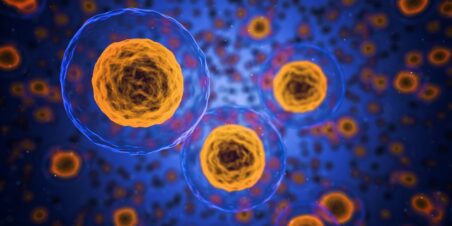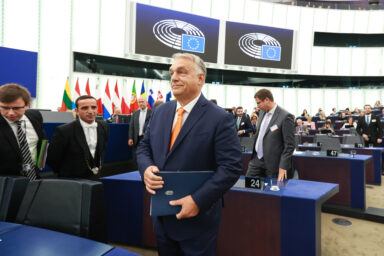The European Medicines Agency (EMA) tested a new pathway to give old drugs new uses. Academics and non-profits stepped up. Companies stayed away, and the fix now sits with EU lawmakers and capitals.
The EMA this summer published the results of its four-year pilot on repurposing authorised medicines. It chose six projects out of 35 applications. Academics and non-profits seized the chance to turn off-label use into approved treatments. Industry, however, barely showed up.
Launched in 2021, the pilot offered tailored scientific advice to “champions”, clinicians and academics backed by patient groups. It focused on products fully off-patent and out of regulatory protection, maximising public-health value but leaving companies with no business case.
“It was extremely important,” François Houÿez, Information & Access to Therapies Director of European Organisation for Rare Diseases (EURORDIS) told EU Perspectives. “But it stops halfway at the scientific advice step and it doesn’t solve all the other problems that go with repurposing.”
You might be interested
Delays, fees, and red tape
Academics struggled with the system. “The duration of each procedure when proposed by academics was in average six months, but for some it took 10 months (…) It is far more complex than for pharmaceutical industry where it is an average one to three months,” Mr Houÿez said. Most of the time was spent clarifying that EMA advice does not grant market authorisation.
We view the pilot as a very useful exercise that helps bridge gaps existing between academic investigators and regulators. – Anticancer Fund
The Anticancer Fund agrees that “the water is deep between academics and EMA,” but takes a more positive view of the pilot. “The Anticancer Fund views the pilot as a very useful exercise that helped bridge gaps that exist between academic investigators and regulators,” it told EU Perspectives.
“Scientific advice is standard for industry, but not yet standard for academics and clinical researchers, despite the benefits that it can bring to their research,” said Anticancer Fund. In one of the Fund’s supported cases, the EMA adapted the process to the needs of both researchers and the patient community. “It led to an evolution in the thinking of the researchers and patients on how evidence could be collected for an ultra-rare sarcoma,” the organisation said.
Costs and lack of incentives
Costs make it worse. “If you as a company would agree and accept to submit an application (…) you will have to pay the fees and to bear all the costs,” Mr Houÿez said. “But then your competitors would also benefit.” Many older drugs lost their internal regulatory teams years ago. “There is simply nobody in charge to reopen the pipeline,” Mr Houÿez noted, especially for rare indications.
There is simply nobody in charge to reopen the pipeline. – François Houÿez, Information & Access to Therapies Director of EURORDIS
The Anticancer Fund added that EMA tried to secure fee waivers for academics, but “member states were reluctant.” The Fund filled part of the gap. It supported two cases, focusing on funding trials and scanning data fit for filing.
“Of the two projects, one is in the process of engaging with a marketing authorisation holder to apply for a label extension for our proposed new indication. The other has not been able to engage with the marketing authorisation holder but has progressed further in the design of future studies to deliver additional supportive data. We also looked at another case which was not selected by EMA, despite having very mature Phase III data,” the Anticancer Fund told EU Perspectives.
What the pharma law gets wrong, and right
Mr Houÿez does not believe that the revision of pharmaceutical legislation will solve the core issue. One provision could even backfire. It would make a new indication mandatory for all marketing authorisation holders after an academic-led success. “That is counterproductive,” Mr Houÿez warned, since rival firms could benefit without paying for the trials.
The Anticancer Fund, by contrast, stressed that “the lack of interest from commercial players in the current legal framework did not come unexpectedly, hence the need for legal change.”
The Anticancer Fund backs Article 48, now in trilogues. It would let not-for-profits and academics apply for a label extension without the original company. “Article 48 is a bold step forward,” the Fund said.
EURORDIS’s fixes, and who should lead
EURORDIS argues that the real fix lies in market rules. Mr Houÿez points to mandatory prescription by indication, so pharmacists cannot automatically swap a repurposed drug for the cheapest generic. He also highlights fee reductions, citing Spain where regulators slash charges by 95 percent. He calls for targeted exceptions to mandatory substitution by active substance, a practice introduced after 2008 that wipes out any business case for rare-disease repurposing.
Mr Houÿez said EU competition law can address concerns over price abuse, noting that regulators act against ’abuse of dominant position’. He insists the European Commission must lead a Joint Action with member states to test these solutions. Large countries, and those that ban or restrict off-label use, should join first so the pilots tackle real bottlenecks. “It’s up to the Commission to take the initiative,” he said.
Return on investment versus societal value
The Anticancer Fund urged policymakers to rethink return on investment ROI). “ROI does not necessarily apply only to financial returns,” the organization said. Societal ROI includes patient access, lower health costs, and improved quality of life. Pricing and reimbursement must reflect added value, a premium above pure generic pricing, paired with fast health technology assessment (HTA) and guideline updates and an ’evidence watch system’ so authorities can invite filings when data are compelling.
Valuable research activities that currently end only in publications… could bring major benefits to patients and society if an appropriate legal framework is available. – Anticancer Fund
Repurposing is a complement, not a substitute, to new drug development. “In some areas, for example rare and ultra rare diseases, drug repurposing may represent a significant portion of development activity,” the Fund said. It also linked the debate to Draghi’s competitiveness agenda: “Valuable research activities that currently end only in publications could bring major benefits to patients and society if an appropriate legal framework is available.”
Patients left waiting
For patients with rare diseases, the stakes are immediate. “In rare diseases, off-label use is common ,” Mr Houÿez said. “Many federations have ideas for drug repurposing when off-label use ignores the right dosage. Yet evidence is needed on efficacy, dose etc. and we need studies.”
The pilot proved academics can navigate EMA. But without industry incentives, Commission-led pilots with member states, and a clear filing route for non-profits, those studies will not reach the pharmacy shelf.
“The potential is huge,” Mr Houÿez concluded. “But this pilot is not the end of the story. We need to solve the other problems.”











